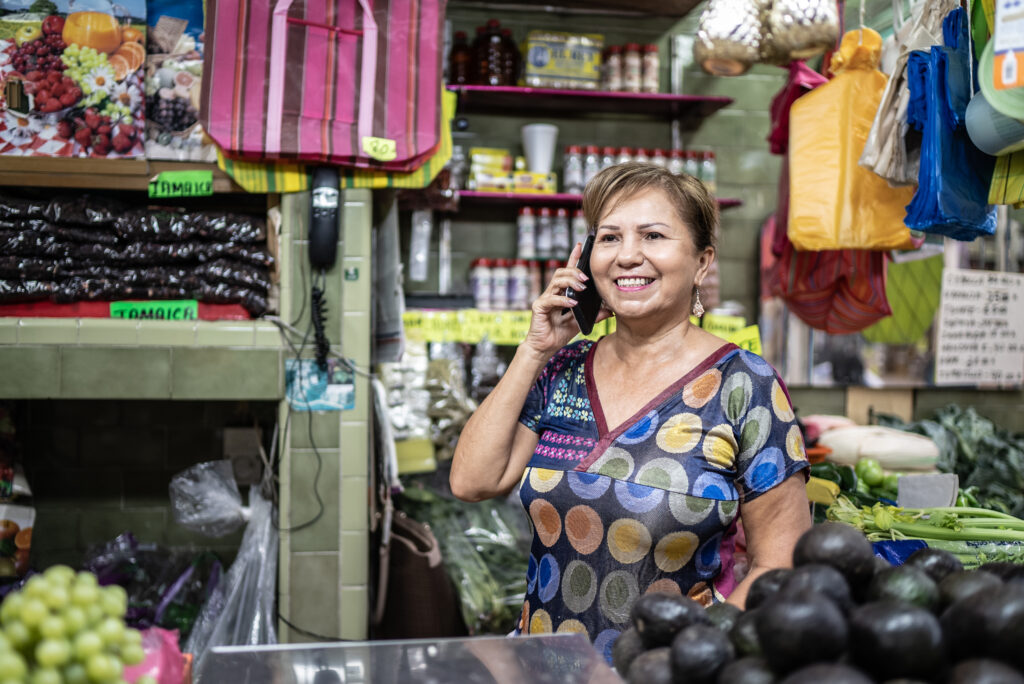Executive Summary
California is home to 4.2 million small businesses, the most of any state in the nation.1 Members of racial and ethnic minority groups own nearly half (46%) of small businesses in California.2 Studies have demonstrated that ethnic-owned businesses3 face disproportionate challenges in starting and maintaining their businesses, including systemic barriers to accessing financial capital,4 new technologies they must adopt,5 challenges in accessing relief funds,6 and higher employee turnover during times of crises.7 These challenges have been compounded in recent years by a pandemic, an increasing demand to be environmentally conscious and prepared for climate change, and a push to adapt to a virtual economy.
Reliable and accessible data can empower leaders to make decisions that improve the livelihood of ethnic communities. Our research sheds light on issue areas in which ethnic-owned small businesses are under-resourced and understudied. This report presents the results of an exploratory study investigating the experiences of ethnic small business owners on the topics of access to capital, digital technology, environmentally sustainable practices, and the impacts of COVID-19 and climate change. We present primary data collected through a phone survey and interviews with small business representatives in California. We compare survey responses to highlight racial and ethnic disparities and showcase the experiences of six entrepreneurs of color.
A survey of more than 600 businesses, supplemented by six in-depth interviews, yielded five key findings:
- Black- and Latino-owned businesses face more barriers than white-owned businesses to accessing financial capital. Twice as many Black-owned businesses reported challenges to accessing financial capital, compared to white-owned businesses (60% and 29%, respectively). Among those who reported experiencing challenges in obtaining funds or capital for their business, a greater share of Black- and Latino-owned businesses reported barriers including low or poor credit scores (48% and 40%, respectively), unaffordable interest rates (69% and 61%), and insufficient forms of capital (76% and 62%).
- Ethnic-owned businesses continue to fight an uphill battle to recover from COVID-19. Twice as many Asian- (49%), Black- (52%), and Latino-owned (53%) businesses reported experiencing a “large negative effect” from the COVID-19 pandemic than white-owned businesses (23%). A greater share of Black-owned businesses (73%) than businesses owned by other racial and ethnic groups anticipate a need for financial assistance or additional capital in the next six months.
- Although engagement in online technology for sales is not high among ethnic-owned businesses, they have a greater probability of falling victim to cybersecurity attacks. Among owners who conduct business online, Black- (22%) and Latino-owned (14%) businesses were the most likely to use social media as their primary platform for online transactions. Asian-owned businesses reported experiencing cybersecurity attacks at the highest rate (27%), compared to lower rates among Latino- (18%), white- (16%), and Black-owned businesses (11%).
- Black and Asian-owned businesses expect climate change to impact their business’s finances and workers. Black- (59%) and Asian-owned businesses (54%) were more likely to report that they expected climate change to have an observable impact on their firm’s finances, as well as their workers’ safety and health.
- Ethnic-owned businesses are actively engaged in environmental sustainability planning. White- (43%) and Latino-owned businesses (35%) reported a greater level of understanding of the impacts of environmentally sustainable practices on their business than Black- (28%) and Asian-owned businesses (27%). Asian- (28%) and Latino-owned businesses (27%) were more likely to report already having a formal environmental sustainability plan in place or that they are currently developing one. Black-owned businesses (45%) reported the greatest intent to develop a sustainability plan in the future compared to businesses owned by other racial and ethnic groups.
Read the full report here.
Endnotes
1 In their state profiles, the U.S. Small Business Administration (SBA) defines small businesses as independent businesses having fewer than 500 employees. SBA Office of Advocacy, “2022 Small Business Profile: California,” August 31, 2022, available online.
2 SBA Office of Advocacy, “2022 Small Business Profile: California.” We estimated the share of racial and ethnic minorities by using reported non-Hispanic white business divided by the sum of respondents reporting their ethnicity and race. The complement of this is the estimated percentage owned by people of color.
3 Throughout this report, we use the terms “ethnic-owned businesses” and “minority-owned businesses” interchangeably. Minority group members in the U.S. include, but are not limited to, individuals of Asian, Black, Latino, and Native American backgrounds.
4 Timothy Bates and Alicia Robb, “Has the Community Reinvestment Act Increased Loan Availability among Small Businesses Operating in Minority Neighbourhoods?” Urban Studies 52, no. 9 (July 1, 2015): 1702–21, available online.
5 Karen L. Middleton and Kent Byus, “Information and Communications Technology Adoption and Use in Small and Medium Businesses: The Influence of Hispanic Ethnicity,” Management Research Review 34, no. 1 (January 1, 2011): 98–110, available online.
6 Robert Fairlie and Frank M. Fossen, “Did the Paycheck Protection Program and Economic Injury Disaster Loan Program Get Disbursed to Minority Communities in the Early Stages of COVID-19?” Small Business Economics 58, no. 2 (February 1, 2022): 829–42, available online.
7 Shinae L. Choi, Erin R. Harrell, and Kimberly Watkins, “The Impact of the COVID-19 Pandemic on Business Ownership Across Racial/Ethnic Groups and Gender.” Journal of Economics, Race, and Policy 5, no. 4 (December 1, 2022): 307–17, available online.

